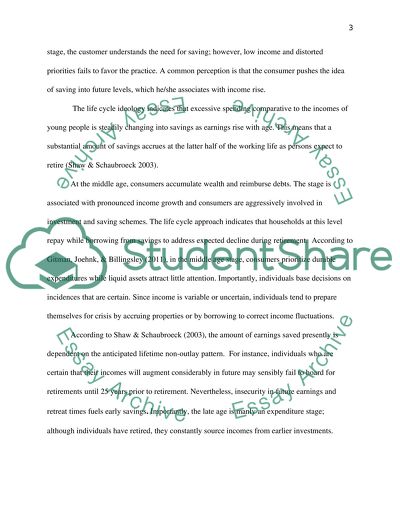Personal finance: Life cycle aproach Essay Example | Topics and Well Written Essays - 750 words. Retrieved from https://studentshare.org/finance-accounting/1450729-personal-finance-how-does-the-life-cycle-approach
Personal Finance: Life Cycle Aproach Essay Example | Topics and Well Written Essays - 750 Words. https://studentshare.org/finance-accounting/1450729-personal-finance-how-does-the-life-cycle-approach.


